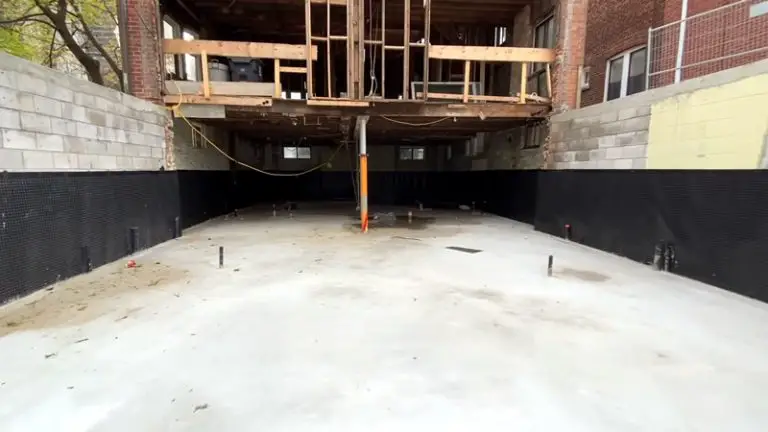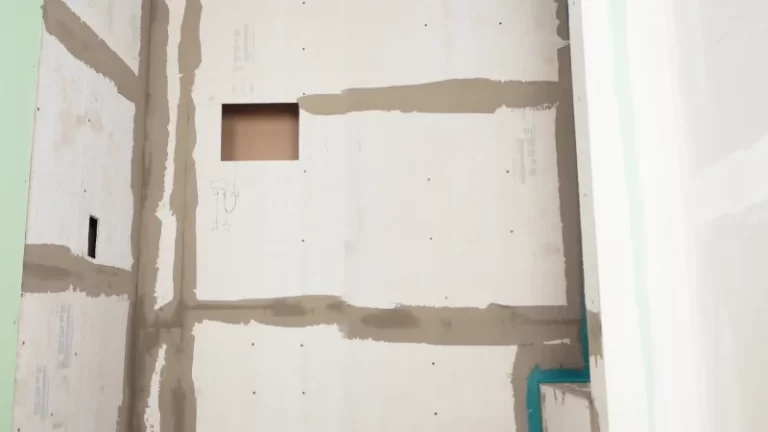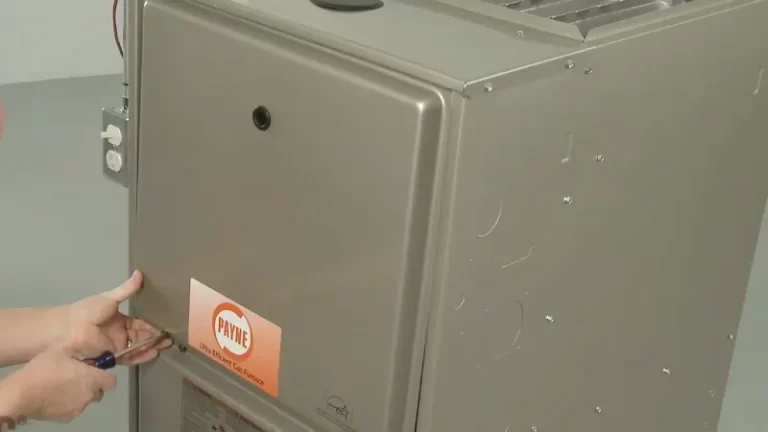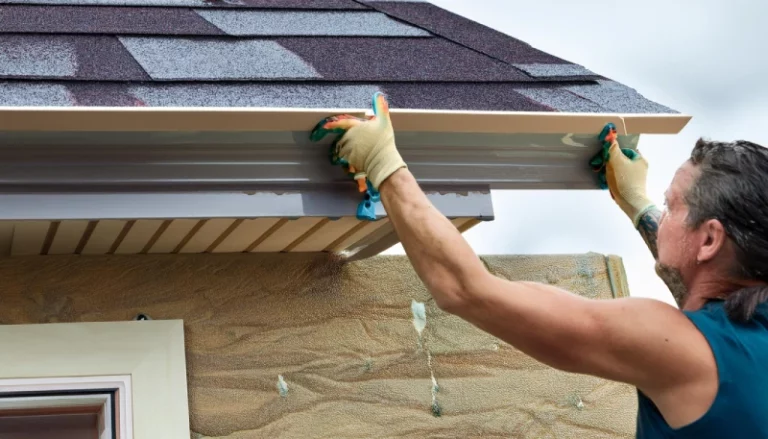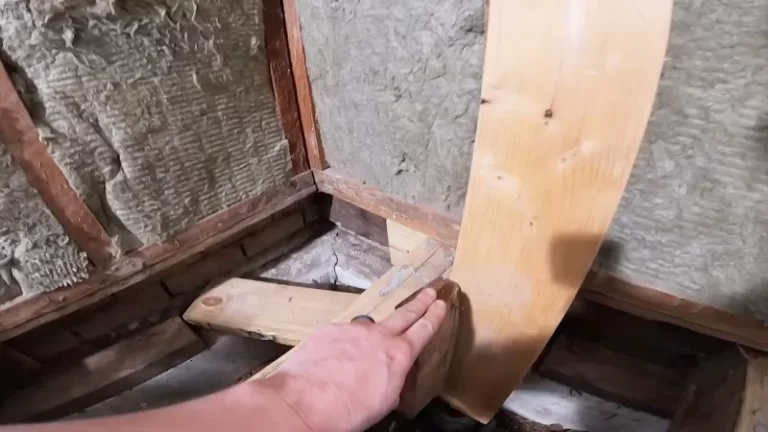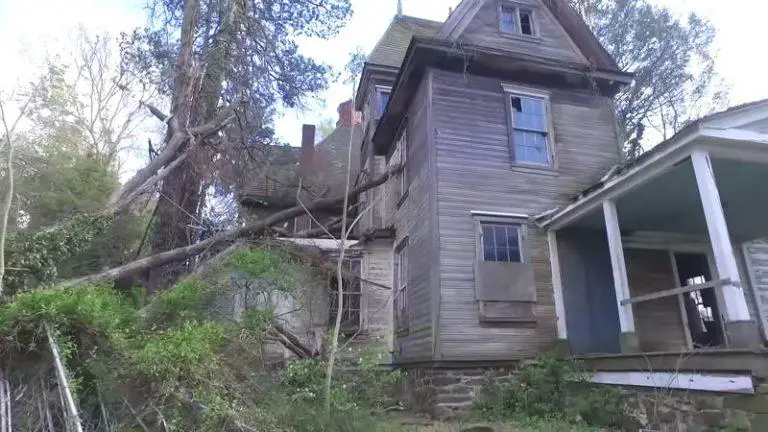100 Year Old Basement Walls Crumbling [4 Reasons and Solutions]
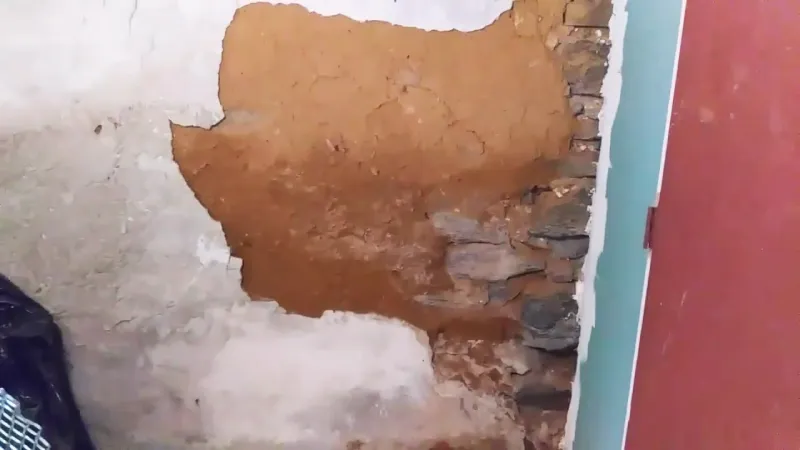
Basement walls are an important structural component of a building, providing support and stability to the foundation. Many older homes, particularly those that are over a hundred years old, have stone basement walls.
While stone is a durable material, it is not immune to wear and tear. Over time, these stone basement walls can begin to crumble, causing concern for homeowners and the safety of their home. In this article, we will explore the causes of crumbling stone basement walls, the signs to look for, and the solutions for repairing and preventing further damage.
You'll Learn About
Causes of Crumbling Stone Basement Walls
Water Damage
Water damage is a common cause of crumbling stone basement walls. When water infiltrates the wall, it can erode the concrete or stone material, causing it to crumble over time. This can be caused by a variety of factors, including leaks in pipes, cracks in the foundation, or inadequate drainage around the foundation of the home.
Freeze-thaw Cycles
Freeze-thaw cycles can also cause stone basement walls to crumble. When water infiltrates the wall and then freezes, it expands, causing the concrete or stone to crack. As the ice thaws, the material contracts, leading to further cracking and eventual crumbling.
Poor Construction
Poor construction can also be a cause of crumbling stone basement walls. If the original construction of the basement walls was flawed, it can lead to their eventual deterioration. This can be due to a variety of factors, including the use of inferior materials or inadequate reinforcement.
Lack of Maintenance
Lack of maintenance is another factor that can contribute to the deterioration of stone basement walls. Neglecting to properly maintain and repair the walls can lead to their eventual crumbling over time. It is important to regularly inspect the walls and address any issues that arise to prevent further damage.
Signs of Crumbling Basement Walls
There are several signs to look for that may indicate that your stone basement walls are crumbling. Some of the most common signs include:
Cracks in the Walls
If you notice cracks in the walls of your basement, it could be a sign that the walls are crumbling. These cracks may appear small at first, but they can quickly grow larger and more severe over time if left unrepaired.
Pieces of Stone or Concrete Falling Off
If you notice pieces of stone or concrete falling off the walls of your basement, it could be a sign that the walls are crumbling. This is often a more advanced stage of deterioration and should be addressed as soon as possible to prevent further damage.
Water Stains or Damage
If you notice water stains or other water damage on the walls of your basement, it could be a sign that the walls are crumbling. Water infiltration can lead to the erosion of the concrete or stone material, causing it to crumble over time. If you notice water damage in your basement, it is important to address the issue as soon as possible to prevent further damage to the walls.
Solutions for Crumbling Basement Walls
If you have noticed that your stone basement walls are crumbling, there are several solutions you can consider to repair and prevent further damage. Some of the most common solutions include:
Repairing Damaged Sections
If the damage to your basement walls is relatively minor, it may be possible to simply repair the damaged sections. This can involve patching cracks, filling in holes, or reinforcing the walls with additional material.
Replacing Damaged Sections With New Material
In some cases, the damage to the basement walls may be too severe to repair. In these cases, it may be necessary to remove the damaged material and replace it with new, stable material. This can be a more labor-intensive and costly process, but it is often necessary to ensure the long-term stability of the walls.
Waterproofing the Walls to Prevent Future Damage
Water infiltration is a common cause of crumbling stone basement walls. To prevent future damage, it is important to waterproof the walls to keep water out. This can involve sealing any cracks or gaps in the walls, installing a drainage system around the foundation of the home, or applying a waterproof coating to the walls.
Importance of Addressing the Issue
It is important to address the issue of crumbling stone basement walls as soon as possible. Ignoring the problem can lead to further damage and potentially even the collapse of the wall. This can be dangerous and can cause serious structural damage to the home.
In severe cases, the damage may be so severe that the home becomes unsafe to live in.
In addition to the safety concerns, ignoring the problem can also lead to increased costs. The longer the problem is ignored, the more extensive the damage is likely to become, resulting in more costly repairs. By addressing the issue early on, you can often save money in the long run by preventing further damage.
Therefore, if you notice that your stone basement walls are crumbling, it is important to take action as soon as possible. This may involve repairing damaged sections, replacing damaged material, or waterproofing the walls to prevent future damage. By addressing the issue early on, you can protect the safety and stability of your home and potentially save money in the long run.
Can Crumbling Concrete Wall Be Repaired?
It is not uncommon for stone basement walls that are over a hundred years old to begin crumbling. This wear and tear is a natural result of the passage of time and exposure to various environmental factors. Some of the most common causes of crumbling stone basement walls include:
- Water damage: Water infiltration can lead to the erosion of the concrete or stone material, causing it to crumble.
- Freeze-thaw cycles: When water infiltrates the wall and then freezes, it can cause the concrete or stone to expand and contract, leading to cracks and eventually crumbling.
- Poor construction: In some cases, the original construction of the basement walls may have been flawed, leading to their eventual deterioration.
- Lack of maintenance: Neglecting to properly maintain and repair the basement walls can also contribute to their deterioration over time.
If you notice that your basement walls are crumbling, it is important to address the issue as soon as possible. Ignoring the problem can lead to further damage and potentially even the collapse of the wall.
To fix a crumbling wall, you will likely need to remove any damaged material and then repair or replace it with new, stable material. This process can take anywhere from a few days to a few weeks, depending on the extent of the damage.
Conclusion
In conclusion, crumbling stone basement walls are a common issue in older homes, particularly those that are over a hundred years old. These walls can crumble due to water damage, freeze-thaw cycles, poor construction, or lack of maintenance.
Some of the signs to look for include cracks in the walls, pieces of stone or concrete falling off, and water stains or damage. To repair and prevent further damage to the walls, you can consider repairing damaged sections, replacing damaged material, or waterproofing the walls.
It is important to address the issue as soon as possible, as ignoring the problem can lead to further damage and potentially even the collapse of the wall. By addressing the issue early on, you can protect the safety and stability of your home and potentially save money in the long run.
A functioning garage door opener is an essential component of any home, providing convenient access to the garage and helping to secure the home against potential intruders. The Genie brand is a popular choice among homeowners due to its reputation for reliability and efficiency.
However, like any mechanical device, Genie garage door openers can experience problems from time to time. In these situations, it can be helpful to seek guidance and support from a forum dedicated to addressing common issues with these openers.
The Genie garage door opener problems forum is a valuable resource for homeowners looking to troubleshoot and fix problems with their openers and ensure smooth and reliable operation.
Common Problems With Genie Garage Door Openers
There are several common problems that homeowners may encounter with their Genie garage door openers. One common issue is difficulty opening or closing the door. This can be caused by a malfunctioning capacitor, worn out trolley or coupler, or a problem with the screw drive.
Another issue that may arise is noise or vibration during operation. This can be caused by worn out or loose parts, such as the trolley or couplers, or debris stuck in the screw drive. Remote control issues are another common problem with Genie garage door openers.
This can be caused by a malfunctioning remote control, dead batteries, or interference from other electronic devices.
Troubleshooting Steps
If you are experiencing problems with your Genie garage door opener, there are several steps you can take to troubleshoot and fix the issue. One of the first steps to take is to check the trolley, couplers, and screw drive for wear or damage.
If any of these parts are worn out or damaged, they may be causing the opener to malfunction. It may also be necessary to replace the capacitor if it is not functioning properly. Another step to take is to test the remote control and batteries.
Make sure the batteries are fresh and properly installed, and try using the remote control at different distances to ensure it is functioning properly. If you have tried these steps and the problem persists, it may be necessary to seek the assistance of a professional garage door repair company or refer to the manual for further guidance.
Seeking Professional Help
If you have tried troubleshooting your Genie garage door opener and are still experiencing problems, it may be necessary to seek the assistance of a professional garage door repair company. There are a few signs that it is time to call a repair company, including:
- The opener is making strange noises or vibrating excessively
- The door is not opening or closing properly
- The remote control is not functioning properly
- The door is off track or misaligned
If you are experiencing any of these issues, it is best to call a repair company for assistance. To find a reputable company, you can ask for recommendations from friends or neighbors, or search online for reviews and ratings.
It is also a good idea to get quotes from multiple companies before making a decision. Make sure to choose a company that is licensed and insured, and has experience repairing Genie garage door openers.
The Value of the Genie Garage Door Opener Problems Forum
The Genie garage door opener problems forum is a valuable resource for homeowners looking to troubleshoot and fix problems with their openers. By reading through the forum and following the advice of other users or experts, homeowners can often find solutions to their garage door opener problems without having to spend money on costly repairs.
The forum is also a helpful platform for sharing experiences and advice with others. By sharing their experiences, users can help others avoid common pitfalls and find the most effective solutions to their problems.
In addition, the forum can provide a sense of community and support, as users can discuss their issues and offer support and encouragement to one another. Overall, the Genie garage door opener problems forum is a valuable resource for homeowners looking to maintain and troubleshoot their garage door openers.
How to Fix Crumbling Interior Basement Walls?
Tools Needed
- Protective gear (hard hat, gloves, goggles)
- Broom or dustpan
- Vacuum cleaner or shop-vac
- Damp cloth or scrub brush
- Concrete patching compound
- Trowel
- Concrete reinforcing mesh
- Concrete nails or masonry screws
- Waterproofing membrane
- Paint or re-finishing materials (optional)
Safety Precautions
Before starting any repair work, make sure that the basement is clear of any debris and is well-ventilated. Wear protective gear, including a hard hat, gloves, and goggles, to protect yourself from falling debris and dust.
Assess the Damage
Take a good look at the walls and identify the extent of the damage. Check for any cracks, holes, or loose mortar. Take photographs or make drawings of the damage to help with the repair process.
Remove Loose Debris
Use a broom or a dustpan to remove any loose debris from the walls. You may also need to use a vacuum cleaner or a shop-vac to remove dust and dirt.
Clean the Walls
Use a damp cloth or a scrub brush to clean the walls and remove any dirt or grime. Allow the walls to dry completely before proceeding with the repair process.
Repair Cracks and Holes
If the walls have cracks or holes, use a concrete patching compound to fill them. Mix the compound according to the manufacturer’s instructions and apply it to the damaged area. Use a trowel to smooth the surface and allow the compound to dry completely.
Reinforce Weak Areas
If the walls are showing signs of weakness, use concrete reinforcing mesh to strengthen them. Cut the mesh to size and attach it to the walls using concrete nails or masonry screws.
Apply a Waterproofing Membrane
To prevent future damage, apply a waterproofing membrane to the walls. Choose a waterproofing membrane that is specifically designed for use in basements and follow the manufacturer’s instructions for application.
Repaint or Re-finish the Walls
Once the repairs are complete, you may want to repaint or re-finish the walls to make them look like new.
What Causes Chalking on the Basement Walls?
The Genie garage door opener is a popular choice for homeowners looking for an efficient and reliable way to open and close their garage doors. However, like any mechanical device, it can experience problems from time to time.
One common problem with the Genie garage door opener is that it may not open or close when the button is pressed. This can be caused by a variety of issues, including a malfunctioning capacitor, worn out trolley or coupler, or a problem with the screw drive.
To troubleshoot this issue, it is important to first check the trolley and couplers for wear, as well as the screw drive for any debris or dirt that may be causing it to malfunction. It may also be necessary to replace the capacitor if it is not functioning properly.
If these steps do not resolve the problem, it may be necessary to seek the assistance of a professional garage door repair company or refer to the manual for further guidance.
The Genie garage door opener problems forum is a helpful resource for homeowners experiencing issues with their opener. It provides a platform for users to share their experiences and seek guidance from others who may have encountered similar problems. By reading through the forum and following the advice of other users or experts, homeowners can often find solutions to their garage door opener problems without having to spend money on costly repairs.
Closing Thoughts
Crumbling basement walls in an older home can be caused by factors like moisture intrusion, foundation settling, or deteriorating materials. Addressing these issues promptly is essential to prevent further damage and maintain the structural integrity of your home.
While repairing your basement walls, consider other home improvement projects. For instance, learning how to handle a tile-to-drywall transition can enhance your space’s aesthetics. Additionally, understanding the cost of a basement under a garage can help you plan future renovations. For more tips, explore our guide on using tile spackle.

